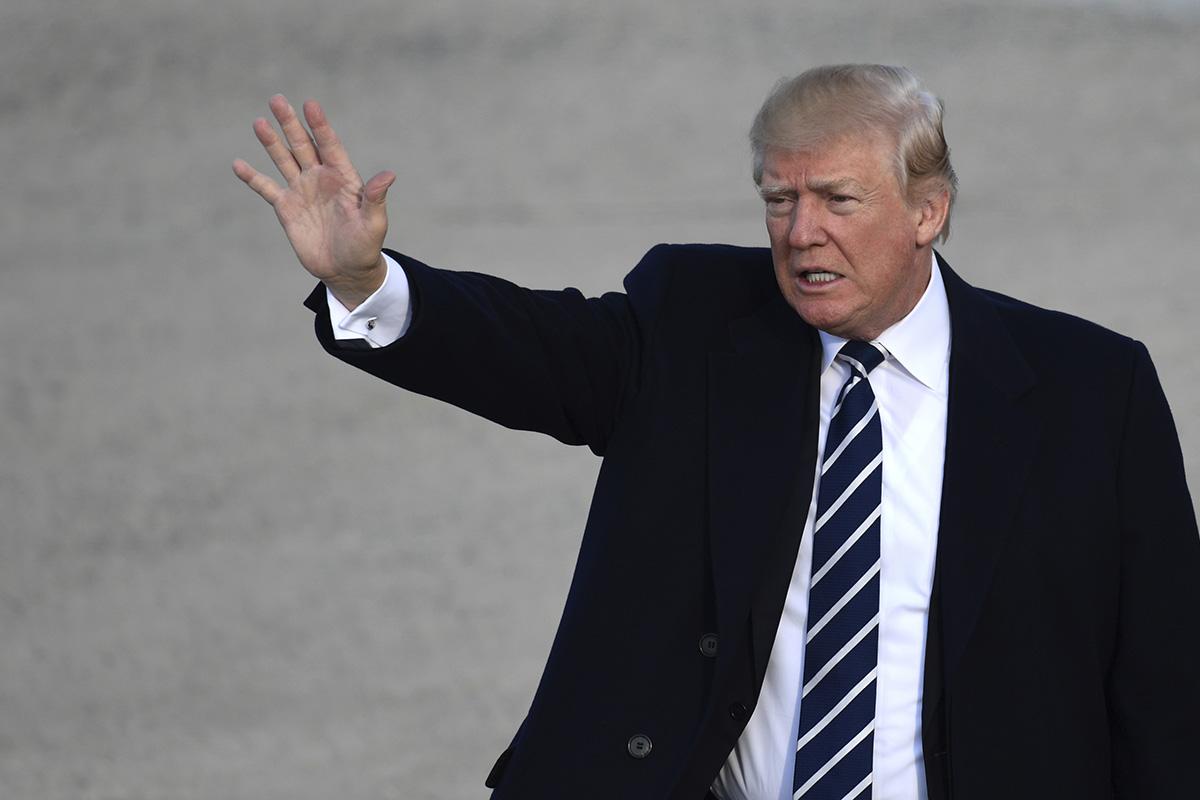Trump faces obstruction of justice claims over Flynn tweet as critic suggests it should 'end presidency'
White House seeks to downplay social media post in which president claims he had to fire Michael Flynn 'because he lied to the Vice President and FBI'

Your support helps us to tell the story
From reproductive rights to climate change to Big Tech, The Independent is on the ground when the story is developing. Whether it's investigating the financials of Elon Musk's pro-Trump PAC or producing our latest documentary, 'The A Word', which shines a light on the American women fighting for reproductive rights, we know how important it is to parse out the facts from the messaging.
At such a critical moment in US history, we need reporters on the ground. Your donation allows us to keep sending journalists to speak to both sides of the story.
The Independent is trusted by Americans across the entire political spectrum. And unlike many other quality news outlets, we choose not to lock Americans out of our reporting and analysis with paywalls. We believe quality journalism should be available to everyone, paid for by those who can afford it.
Your support makes all the difference.Donald Trump is facing claims that a tweet about the firing of his former National Security Adviser Michael Flynn could amount to obstruction of justice, with one former government ethics official saying it could 'end' his presidency.
Responding to Mr Flynn's guilty plea for lying to the FBI as part of the federal investigation into possible links between his presidential campaign and Russia, Mr Trump tweeted: "I had to fire General Flynn because he lied to the Vice President and the FBI. It is a shame because his actions during the transition were lawful. There was nothing to hide!“
Critics jumped on the social media post, claiming it appeared to suggest that Mr Trump knew that Mr Flynn had lied to investigators before he was forced out of the administration in February.
The president then allegedly encouraging the head of the FBI to drop the investigation into Mr Flynn.
Mr Flynn was interviewed by the FBI on 24 January and he admitted in a Washington DC courtroom earlier this week, that he had made false statements at that time about his contact in December with then-Russian Ambassador to the US, Sergey Kislyak. He discussed US sanctions with the ambassador on 29 December.
The week before he spoke about a United Nations vote on Israel. Mr Flynn admitted to originally telling the FBI that he did not do so.
Mr Flynn resigned from the Trump administration on 13 February after it emerged he had also given inaccurate statements Vice President Mike Pence about his interactions with Mr Kisylak. Former FBI Director James Comey subsequently testified in front of Congress that Mr Trump told him during a 14 February meeting at the White House, that he hoped Mr Comey could "let this go", in regards to the investigation of Mr Flynn.
The former director of the US Office of Government Ethics, Walter Shaub, was quick to suggest the tweet might have "ended" any other presidential administration.
Knowing that Mr Flynn lied while pressuring the FBI drop an investigation could potentially be seen as obstruction of justice according to critics, including California Democrat Representative Ted Lieu.
A lawyer for Mr Trump Marc Kasowitz strongly denied Mr Comey's claim at the time it was made. He told The Washington Post: “The president never in form or substance directed or suggested that Mr. Comey stop investigating anyone, including the president never suggested that Mr. Comey, quote, ‘Let Flynn go,’ close quote.” Mr Trump has consistently denied any collusion with Russia and has labelled the investigation a "witch hunt".
Mr Comey was fired from his position in May by Mr Trump and Special Counsel Robert Mueller was appointed to take over the investigation. It originally began as a probe into Russian meddling in the 2016 presidential election, which a number of US intelligence agencies believe was aimed at aiding Mr Trump, but has grown to include a number of other areas.
It is believed that potential obstruction of justice is an area Mr Mueller and his team are looking into as part of the Russia probe.
However, it would likely not have been difficult for those in the White House to discern that Mr Flynn was potentially under investigation, with Acting Attorney general Sally Yates telling White House Counsel Don McGahn on 26 January, two days after Mr Flynn's FBI interview, that he had discussed sanctions with Mr Kislyak. Ms Yates also said that that she had told Mr McGahn that Mr Flynn had been interviewed by the FBI but did not characterise what Mr Flynn had told investigators.
As for Mr Trump's tweet today about Mr Flynn, Trump administration officials have sought to play down its significance. The Washington Post reported that the tweet was potentially drafted by Trump lawyer John Dowd, citing sources, while other officials called the tweet simply "sloppy".
After Mr Flynn's guilty plea to the one charge of lying to the FBI, the White House also sought to distance Mr Trump. “Nothing about the guilty plea or the charge implicates anyone other than Mr. Flynn,” Ty Cobb, the White House lawyer, said in a statement.
Mr Flynn is the first official within the Trump administration to be charged in relation to the investigation, but is the fourth person connected to the Trump campaign.
In October, Mr Trump’s former campaign manager, Paul Manafort, and his associate Rick Gates, were charged with 12 counts of financial crimes related to their work in Ukraine, charges they both deny. At the same time, Mr Mueller revealed foreign policy adviser George Papadopoulos had pleaded guilty to lying to the FBI about contacts with Russia-linked individuals – a similar charge that Mr Flynn admitted to as part of the plea deal.
Join our commenting forum
Join thought-provoking conversations, follow other Independent readers and see their replies
Comments